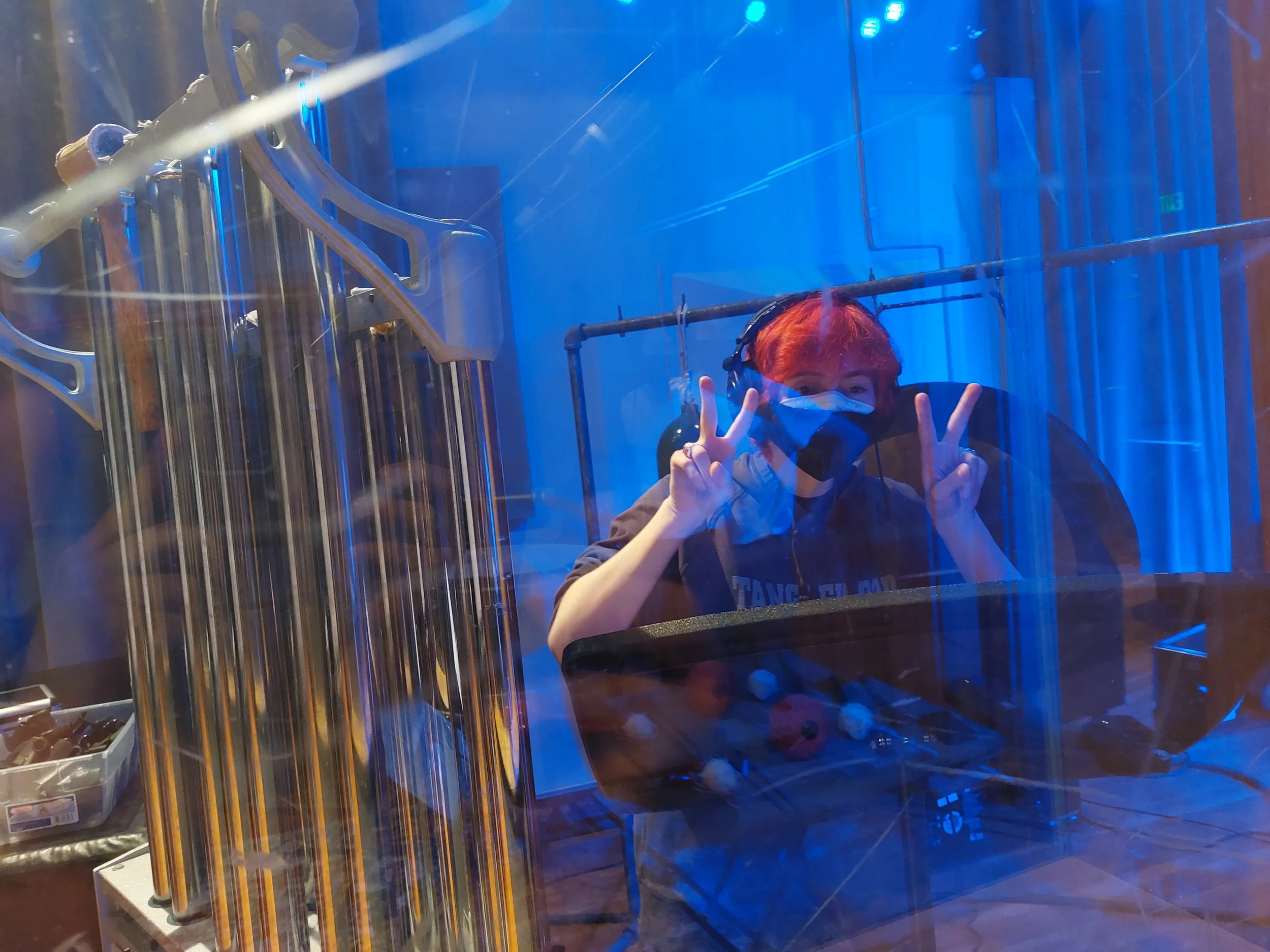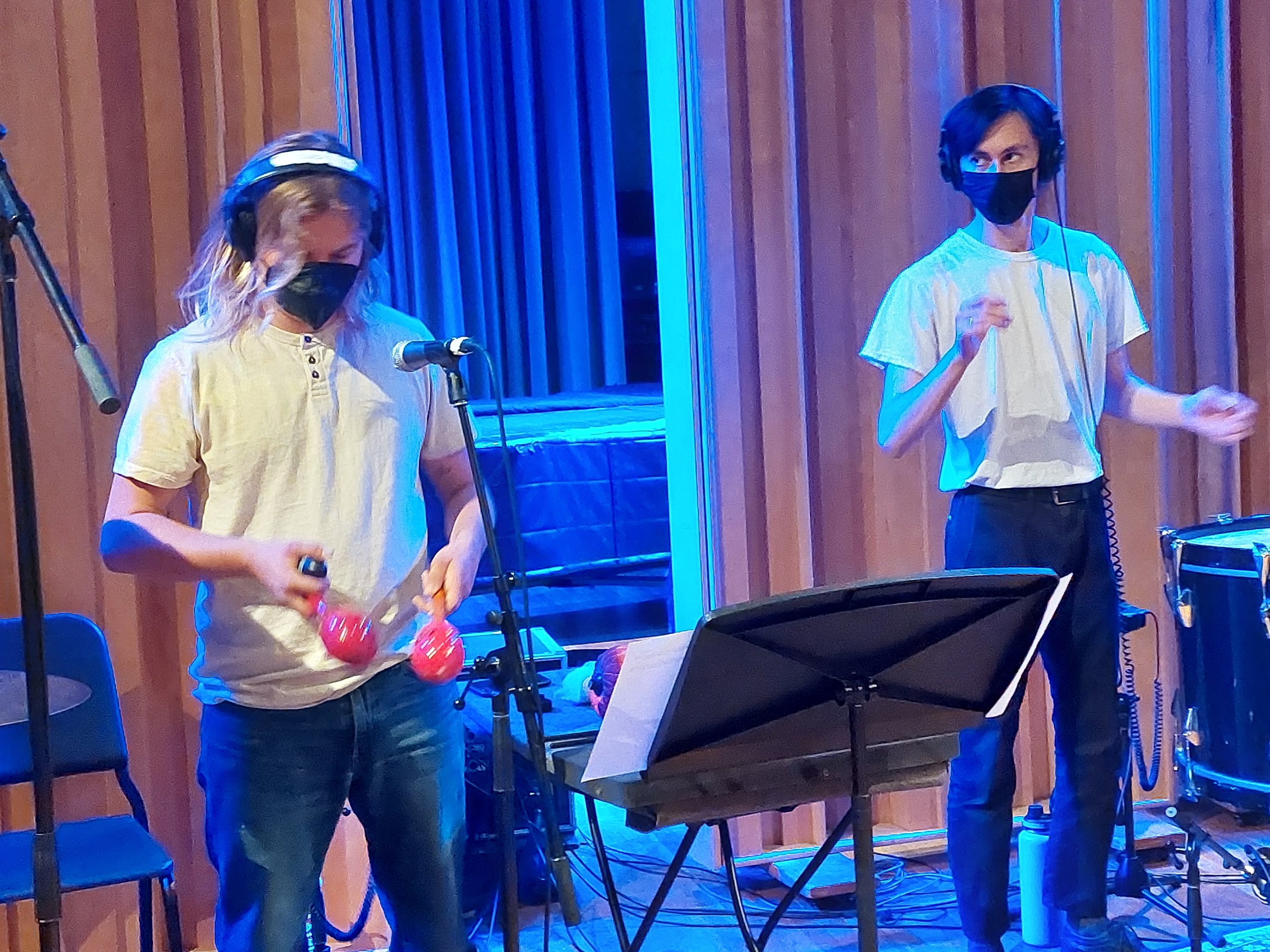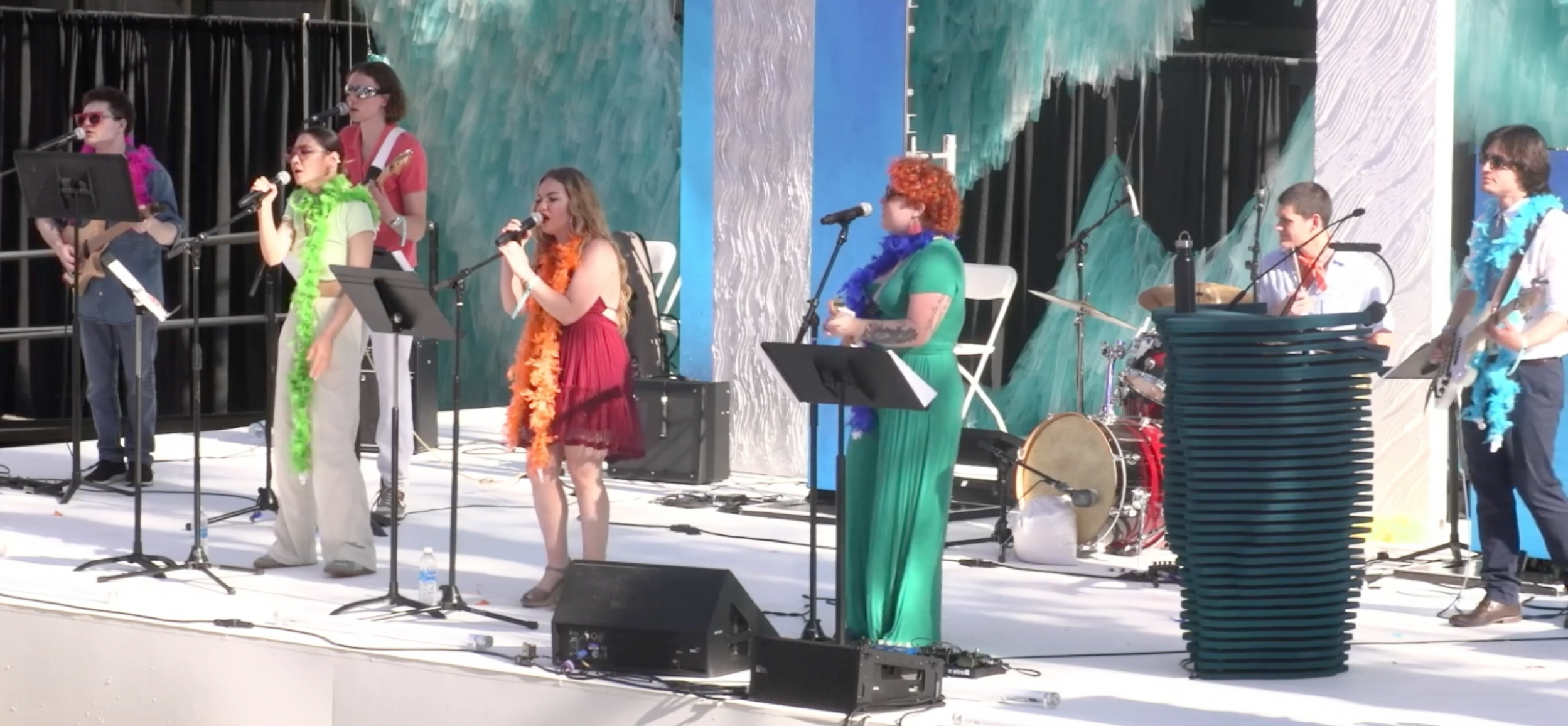Project-Based Learning
Immersive, hands-on education for a new generation of writers, performers and engineers
Creative Repertory Ensemble/Project Recording at CalArts
Introducing Creative Repertory Ensemble
In response to my own experiences as a private educator and bandleader, as well as my professional experiences as a female guitarist from a multicultural family and musical background, I began cultivating an experiential approach to classroom music education in 2019. I have been very fortunate to partner with CalArts technical director John Baffa to develop a hands-on, immersive approach to teaching foundational performance practice to a new generation of learners.
In Fall 2020 we piloted the Creative Repertory Ensemble/Project Recording course module to a group of fully-remote students with our then artist-in-residence, songwriter and community organizer AJ Haynes. Since returning to campus, our cohort has grown to roughly 40 student performers, engineers and teaching assistants, all engaged in learning to collaborate effectively between their various disciplines.
running a recording session in the live room at California Institute of the Arts
Our core teaching philosophy
Creative Repertory Ensemble performs The Rise and Fall of Ziggy Stardust and the Spiders From Mars, December 2021
Our core teaching centers around principles of collective care, body-based intelligence, personal accountability and fundamentals of performance and recording practice as seen through a hands-on, real-world lens. Ensemble students learn to read, transcribe and reproduce repertory material from significant moments in our cultural history, and then work together to create new material that acknowledges this history while facing forwards to greet the ever-changing landscape ahead. Along the way, they develop facility with basic rhythmic and harmonic notation, principles of vocal harmony as passed down through various oral traditions, accountability to deadlines and to personal practice routines, and mindful approaches to collaboration, performance practice and critique.
Recording students learn fundamentals of live music recording by interacting with the ensemble students on a weekly basis, fundamentals of mixing by working intensively with both faculty to develop industry-standard mixes of repertory and original material, and technical principles of mastering via an end-of-session field trip to work with Evren Goknar, formerly of Capitol mastering. All students on both sides of the creative process are encouraged to attend the mastering session and to ask technical and aesthetic questions about this crucial final step in the post-production pipeline.
Students present their final projects in recorded format, and with an annual repertory concert in the fall. The 2021-22 school year focused primarily on the ideas of glam, queerness, futurism and cultural storytelling through an intensive study of rock opera as presented by David Bowie’s alter ego, Ziggy Stardust. In addition to presenting their usual cluster of repertory work for ensemble and recording, a broader cohort of students across three schools within CalArts have worked together to envision and compose a 27-piece rock opera exploring these themes through a modern lens. 2022-23 focused on completing the past year’s student-developed rock opera and then spent a semester memorializing the recently-departed David Crosby and Jeff Beck. The 2023-24 school year will be spent developing new work inspired by the women of outlaw country in the fall, and by Nile Rodgers and Grace Jones in the spring.
Creative Repertory Ensemble performs ‘the Road’ live at CalArts Graduation Ceremony, May 2023
Music in the Oral Tradition
To assist guitarists in particular with the challenges presented by developing music notation and harmony fundamentals in a keyboard-driven theory education environment, I developed a course called Music in the Oral Tradition as a companion class to the Creative Repertory/Project Recording module. This course is designed to demystify the fingerboard of the guitar for emerging guitarists and songwriters who have primarily learned to play by ear, with an emphasis on helping them to develop an improvisation practice as a means of processing and retaining core theory concepts. The course description for this class is as follows:
An intervals-based examination of melody and harmony as it applies to the oral traditions developed and maintained within the modern practice of electric and acoustic guitar. We will look at the forms of musical intelligence passed down from guitarist to guitarist over the generations, in a variety of contexts and styles, with an emphasis on instrumental and vocal music that does not easily translate to and from the written note. Open to any School of Music students with an interest in understanding functional harmony through the lens of popular music, as musical languages developed by ear are available for use by all.
LACM
I teach an expanded version of Music in the Oral Tradition to the incoming guitar majors at the Los Angeles College of Music called “String Theory I”, as well as a condensed version of the ensemble/recording module that focuses exclusively on production techniques for arranging and recording the plectrum family, called “Strings for Producers.” I am also presently overseeing the Jazz I ensemble for first-year guitarists, a preparatory theory lab aptly named ‘Jazz Prep I’, and recently served as the inaugural chair of the 2022-23 faculty Senate.






